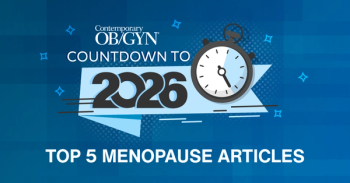
Plant-rich diets linked to higher likelihood of healthy aging
The study is among the first to examine dietary patterns relating to overall healthy aging rather than specific diseases or mortality.
A 30-year study of more than 105,000 middle-aged adults found that maintaining a diet rich in plant-based foods, with low to moderate intake of healthy animal-based foods and reduced consumption of ultra-processed foods, was associated with a higher likelihood of healthy aging.1
The study, conducted by researchers at Harvard T.H. Chan School of Public Health, University of Copenhagen, and University of Montreal, is among the first to examine dietary patterns relating to overall healthy aging rather than specific diseases or mortality.
“Studies have previously investigated dietary patterns in the context of specific diseases or how long people live. Ours takes a multifaceted view, asking, how does diet impact people’s ability to live independently and enjoy a good quality of life as they age?” said Frank Hu, Fredrick J. Stare Professor of Nutrition and Epidemiology and chair of the Department of Nutrition at Harvard Chan School.
The study, recently published in Nature Medicine, analyzed data from the Nurses’ Health Study and the Health Professionals Follow-Up Study.
Participants, ages 39-69 years at the start, completed dietary questionnaires over 30 years. Researchers scored their adherence to 8 dietary patterns: the Alternative Healthy Eating Index (AHEI), the Alternative Mediterranean Index (aMED), the Dietary Approaches to Stop Hypertension (DASH), the Mediterranean-DASH Intervention for Neurodegenerative Delay (MIND), the healthful plant-based diet (hPDI), the Planetary Health Diet Index (PHDI), the empirically inflammatory dietary pattern (EDIP), and the empirical dietary index for hyperinsulinemia (EDIH).2
Each diet emphasizes fruits, vegetables, whole grains, nuts, legumes, and healthy fats, with some including moderate amounts of fish and dairy. Researchers also assessed participants’ intake of ultra-processed foods, which often contain artificial ingredients, added sugars, sodium, and unhealthy fats.
Among study participants, 9,771 (9.3%) aged healthfully, defined as reaching age 70 without major chronic diseases while maintaining cognitive, physical, and mental health. All 8 dietary patterns were associated with overall healthy aging and its components.
The AHEI diet showed the strongest association with healthy aging. Participants in the highest quintile of the AHEI score had an 86% greater likelihood of healthy aging at age 70 and a 2.2-fold higher likelihood of healthy aging at age 75 vs those in the lowest quintile. The PHDI, which prioritizes plant-based foods and minimizes animal-based foods, was also strongly linked to healthy aging.
Higher consumption of ultra-processed foods, particularly processed meats and sugary or diet beverages, was associated with a lower likelihood of healthy aging.
“Since staying active and independent is a priority for both individuals and public health, research on healthy aging is essential,” said Marta Guasch-Ferré, associate professor in the Department of Public Health at the University of Copenhagen and adjunct associate professor of nutrition at Harvard Chan School. “Our findings suggest that dietary patterns rich in plant-based foods, with moderate inclusion of healthy animal-based foods, may promote overall healthy aging and help shape future dietary guidelines.”
“Our findings also show that there is no one-size-fits-all diet. Healthy diets can be adapted to fit individual needs and preferences,” added Anne-Julie Tessier, assistant professor in the Department of Nutrition at the University of Montreal and visiting scientist at Harvard Chan School.
The researchers noted some limitations, including that the study population consisted solely of health professionals. They suggested that future studies involving populations with diverse socioeconomic backgrounds and ancestries could help assess the findings' broader applicability.
References
1. Harvard T.H. Chan School of Public Health. Healthy eating in midlife linked to overall healthy aging. Eurekalert. March 24, 2025. Accessed March 26, 2025. https://www.eurekalert.org/news-releases/1077404
2. Tessier AJ, Wang F, Korat AA, et al. Optimal dietary patterns for healthy aging. Nat Med. Published online March 24, 2025. doi:10.1038/s41591-025-03570-5
Newsletter
Get the latest clinical updates, case studies, and expert commentary in obstetric and gynecologic care. Sign up now to stay informed.









